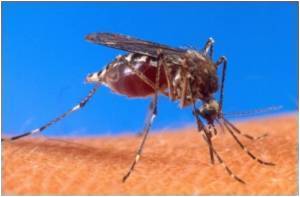
The parasite is increasingly associated with malaria deaths and is three times more frequent as a cause of severe malaria in Borneo than the more common P. falciparum parasite that is currently considered the world's most deadly form of the disease.
The main host of Plasmodium knowlesi malaria has been the long-tailed and pig-tailed macaques found in the tropical forests of Malaysia and elsewhere in Southeast Asia.
Balbir Singh, the director of the Malaria Research Center, said that this is a form of malaria that was once rarely seen in people, but today, in some remote areas of the country, all of the indigenous malaria cases we are seeing are caused by the P. knowlesi parasite.
Singh added that if the number of cases continue to increase, human-to-human transmission by mosquitoes becomes possible, in fact, this may already have happened, which would allow P. knowlesi malaria to spread more easily throughout Southeast Asia.
Singh concluded that controlling a zoonotic, which means an animal-to-human infection, carried by outdoor feeding mosquitoes is almost impossible with currently used methods.
Advertisement













